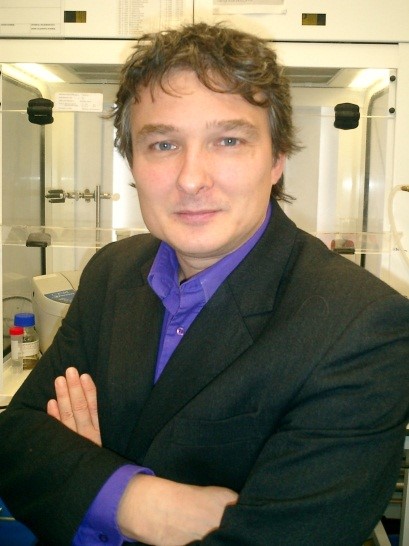The MCRC Team

Margarida Fardilha is an Assistant Professor with Habilitation at the University of Aveiro (UA), Portugal and the coordinator of the Signal Transduction Laboratory at the Institute for Biomedicine (iBiMED), UA. She completed her degree in Biochemistry in 1996 at the University of Porto and her PhD in Biology in 2004, at the UA. Her main research interests are related to the role of Phosphoprotein Phosphatase 1 (PP1) in male-related disorders. Within the consortium, Margarida is identifying and characterizing the PP1 interactome in male reproductive-related tissues, to identify protein complexes that may be used as diagnostic/ therapeutic targets. She has pioneered research involving the design of Protein Phosphatase 1 (PP1)-disrupting peptides, or STOPSPERM bioportides, to modulate protein interactions with an impact upon sperm motility (patent WO2019016555A1 and Fertil. Steril. (2020), S0015-0282(20)30767-6.

Joana Vieira Silva is a postdoctoral researcher in clinical medicine with a PhD in the field of male contraception. She has dedicated her research to male fertility, specifically to the identification of protein interactions as targets for male contraception. She has been involved in the design of Protein Phosphatase 1 (PP1)-disrupting peptides (STOPSPERM bioportides) to modulate protein interactions and reduce sperm motility and fertilization capacity. These studies have supported in a joint patent (Portugal/UK; WO2019016555A1), a publication in a high impact Q1 journal in the reproduction field (Fertil. Steril. (2020), S0015-0282(20)30767-6, and two financed projects (PTDC/BBB-BQB/3804/2014 and EPIC-2019-VIB-001).

John Howl is Professor of Molecular Pharmacology within the Research Institute of Healthcare Science, University of Wolverhampton, UK. He completed his degree on Biological Sciences (1984) and PhD (1988) at the University of Birmingham where he maintains an honorary research fellowship in thre School of Biosciences. John’s major research interests encompass bioactive peptides, particularly cell penetrating peptides, a technology adapted in the recent design and charaterization of STOPSPERM bioportides. His molecular pharamcology research group, including Dr Sarah Jones, maintains a microwave-enhanced peptide synthesis facility which supplies de novo materials to the MCRC.
Dr Sarah Jones is a Reader in Pharmacology within the School of Pharmacy and a member of the Molecular Pharmacology Research Group within the Research Institute in Healthcare Sciences at the University of Wolverhampton.
Sarah’s research focuses on Cell Penetrating Peptides (CPPs) as a means to target numerous and previously intractable intracellular sites. Alongside Professor John Howl, Sarah has played a major role in the development of bioactive CPPs, bioportides, which has resulted in a paradigm shift from the use of CPPs merely as inert vectors, to their applicability and therapeutic utility as modulators of intracellular protein-protein interactions.
In 2013, Sarah reported that structurally distinct and inert CPPs accumulated within discrete sperm compartments and paved the way for CPPs as efficient delivery vectors that do not compromise human sperm viability or motility (Jones et al., 2013). This development precipitated the subsequent design and identification of bioportides capable of penetrating human sperm cells to modulate the activities of intracellular proteins that control calcium signalling (Morris et al., 2015), motility and fertilisation capacity (Viera et al., 2021). Sarah is a named inventor on the UK Patent, PPP1CC2 interactome-derived bioportide technologies for the control of sperm motility and male fertility. UK Patent Application (No. 1711620.3) filed 19th July 2017.
Sarah is a peer-elected fellow of the Royal Society of Biology and has made numerous public appearances including BBC2’s Horizon "The Contraceptive Pill; How Safe is it?" 19th November 2018 and Channel 4’s Live Well for Longer, 18th July 2018.
Publications:
- Jones, S., Lukanowska, M., Suhorutsenko, J., Oxenham, S., Barratt, C., Publicover, S., Copolovici, D.M., Langel, Ü. and Howl, J. (2013) Intracellular translocation and differential accumulation of cell penetrating peptides into bovine spermatozoa: evaluation of efficient delivery vectors that do not compromise human sperm motility. Human Reproduction 28, 1874-1889
- Morris, J., Jones, S., Howl, J., Lukanowska, M., Lefievre, L. & Publicover, S. (2015) Cell penetrating peptides, targeting the regulation of store-operated 1 channels, slow decay of the progesterone-induced [Ca2+]i signal in human sperm. Molecular Human Reproduction 21, 563-570.
- Vieira Silva, J., Freitas, M.J., Santiago, J., Jones, S., Guimarães, S., Vijayaraghavan, S., Publicover, S., Colombo, G., Howl, H. & Fardilha, M. (2021) Disruption of Protein Phosphatase 1 complexes with the use of bioportides as a novel approach to target sperm motility. Fertility and Sterility 115(2), 348-362


/prod01/wlvacuk/media/departments/digital-content-and-communications/images-2024/240328-Varsity-Line-Up-Resized.jpg)
/prod01/wlvacuk/media/departments/digital-content-and-communications/images-18-19/220325-Engineers_teach_thumbail.jpg)
/prod01/wlvacuk/media/departments/digital-content-and-communications/images-2024/240423-Additive-Research-Centre-Launched.jpg)
/prod01/wlvacuk/media/departments/digital-content-and-communications/images-2024/240320-Uzbekistan-Resized.jpg)
/prod01/wlvacuk/media/departments/digital-content-and-communications/images-2024/240229-The-Link-Resized.jpg)
/prod01/wlvacuk/media/departments/digital-content-and-communications/images-2024/240416-Abi-Dare-Resized.jpg)